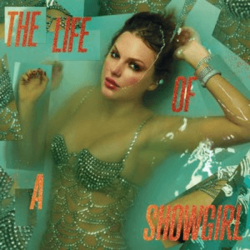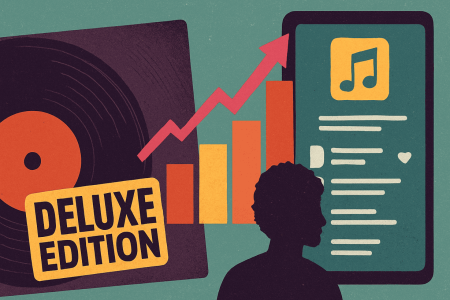Deluxe editions used to be a treat. They gave fans a few extra tracks, maybe some behind-the-scenes content, and made an album feel more complete. But in recent years, that’s changed. These extended versions are no longer just about adding value for the listener. They have become a key part of chart strategy.
From Bonus to Business Strategy
Deluxe editions used to be simple. They were often tied to physical releases, giving superfans a few extra songs or alternate versions as a thank you. These editions felt like a bonus, not a business move.
That changed with the rise of streaming. Now, deluxe editions are a calculated tool. Labels drop them days or even weeks after the original release to reignite interest and push streaming numbers back up. The goal is not always to add to the album’s story, but to stretch its time in the spotlight.
By adding new tracks after the hype dies down, artists can trigger another wave of listens, which helps boost chart positions and keeps the album in conversation longer.
Chart Gaming 101
Streaming has changed how albums are measured. Instead of just counting sales, charts now use a formula called album-equivalent units. This means a certain number of streams count as one album sale. For example, Billboard counts 1,250 paid streams or 3,750 ad-supported streams as one album unit.
This system rewards volume. The more tracks on an album, the more chances there are to rack up streams. So when artists drop deluxe editions with several new songs, they are not just adding content. They are stacking the deck.
The strategy works. Each new track gives fans a reason to press play again, even if the songs don’t add much value. This can give albums a second wind on the charts, sometimes pushing them back into the top spots weeks after release. It’s a numbers game, and right now, the game is built to favor those who play it big.
Fans or Figures?

At some point, the question has to be asked: who are these deluxe editions really for? On the surface, they seem like a gift to fans. But in many cases, they feel more like a nod to the algorithm.
Too often, the added tracks come across as rushed or recycled. They repeat sounds, themes, or hooks from the original release without offering anything new. It feels less like creative expansion and more like padding.
The result? The album’s vision starts to blur. What may have been a tight, focused body of work gets stretched thin. The storytelling, the flow, even the emotional impact can take a hit. All because the numbers mattered more than the message.
The Burnout Factor
There’s such a thing as too much music, even from your favorite artist. When deluxe editions flood an album with extra tracks, it can lead to listener fatigue. Instead of making the album feel bigger, it starts to feel bloated.
With so many songs competing for attention, it gets harder for standout tracks to rise above the noise. Great moments get buried, and the impact of the original release fades faster.
This overload also hurts replay value. Fans are less likely to revisit an album that feels overwhelming or inconsistent. Over time, what could have been a sharp, memorable project risks being forgotten—or worse, skipped altogether.
Unfair Advantage
Not every artist can drop a deluxe edition at the snap of a finger. For independent or smaller acts, recording extra songs, securing studio time, and rolling out a second wave of promotion takes time and money they often don’t have.
Meanwhile, major labels have the resources to flood streaming platforms with content. They can push deluxe editions with full marketing campaigns, playlist placement, and targeted promotion. This gives their artists an outsized edge in visibility and chart performance.
The gap keeps growing. The more the system rewards volume and strategy over substance, the harder it becomes for emerging voices to break through. Deluxe editions, once a bonus, are now part of a game that many can’t afford to play.
Can the System Be Fixed?
If deluxe editions are being used to game the system, maybe it’s time to change the rules. One idea is to cap the number of tracks that count toward chart positions. That would level the playing field and shift the focus back to quality over quantity.
Another option is to treat re-releases and deluxe editions as separate drops. This way, albums wouldn’t get a second life on the charts unless they bring something truly new to the table.
Streaming platforms and chart compilers could also consider weighting engagement more heavily than raw volume. If a smaller album is being played on repeat, that should matter more than a bloated one getting skipped halfway through.
None of these fixes are simple. But if the goal is to reflect real impact, the system has to evolve.
Why It Matters
On the surface, deluxe editions might seem harmless—just a few extra tracks for the fans. But when they’re used as a chart strategy rather than an artistic choice, they start to warp the entire music ecosystem.
The pressure to game the system shifts focus away from the music itself. Albums become content dumps, not creative statements. Artists chase streams instead of pushing boundaries.
If the industry keeps rewarding volume over vision, we risk losing what makes music powerful in the first place. It’s time to rethink the model and put the spotlight back where it belongs—on the art.
